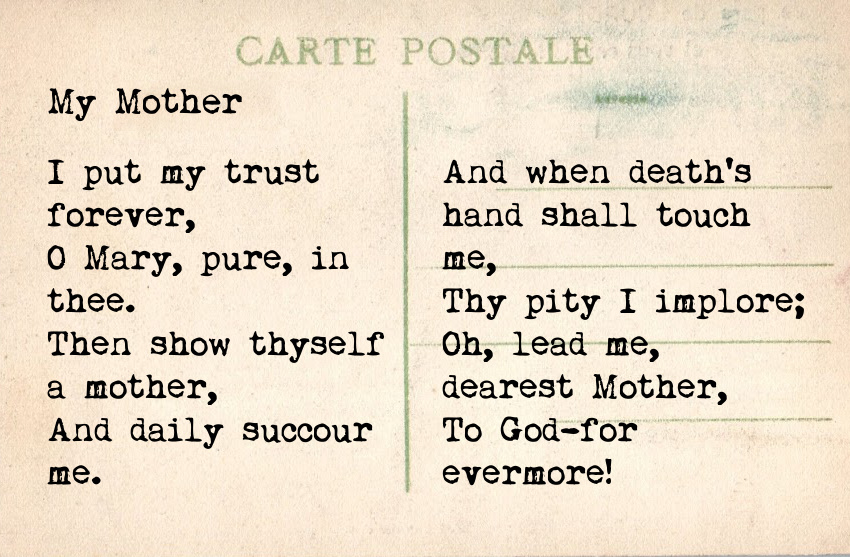
In this chapter, a rumor spreads in town about the sudden interruption of the supernatural apparitions seen by Bernadette. The Commissary confronts Bernadette's family, renewing threats, but finds Francois Soubirous less compliant. Bernadette insists on her daily visits to pray, despite the Commissary's threats of imprisonment. The police agent, frustrated by Bernadette's unwavering simplicity and the lack of legal grounds to prosecute her, seeks further assistance from the Procureur Imperial who also finds no legal basis for treating Bernadette as a criminal.
Find more chapters here.
WHAT we have just related had taken place in the afternoon, and a rumor of it had rapidly spread through the town. The sudden interruption of the supernatural Apparitions gave rise to the most opposite comments. Some pretended to derive from the circumstance an unanswerable argument against all the preceding visions; others, on the contrary, considered it as an additional proof of the child’s sincerity.
This irresitible power, said to have carried away Bernadette in spite of herself, elicited shrugs from all the philosophical shoulders in the place, and furnished a subject for interminable theses to the respectable savants, who explained everything by a perturbation of the nervous system.
The Commissary, seeing that his injunctions had been infringed, and learning, in addition to this, that Francois Soubirous had removed the prohibition which he had imposed on his daughter, sent for both of them, together with the mother, and renewed his threats. He succeeded in alarming them afresh; but, notwithstanding the terror with which he inspired them, he was greatly surprised at no longer finding in Francois Soubirous the docility and feebleness of character displayed by him the previous evening.
“Monsieur Jacomet,” said the poor man, “Bernadette has never told an untruth, and if God, the Blessed Virgin, or any other Saint calls her, we cannot offer any opposition to them. Put yourself in our place. God would punish us.”
“Besides, you say yourself that the Vision has ceased to make its appearance,” argued Jacomet, addressing himself to the child. “You have now nothing more to do there.”
“I have promised to go there every day during the Quinzaine,” replied Bernadette.
“All that is mere stuff!” exclaimed the Commissary, in a tone of exasperation; “and I shall put you all in prison if this girl continues to excite the mob with her grimaces.”
“Good God!” said Bernadette. “I go to pray there quite alone. I do not invite any one, and it is not my fault if so many persons precede and follow me. They have, indeed, said that it was the Blessed Virgin, but as for myself, I do not know who it is.”
Accustomed as he was to the quibbles and artful tricks of rogues, the Agent of Police was disconcerted, face to face, with such profound simplicity. His craft, his marvelous shrewdness, his captious questions, his threats, all the cunning or alarming tricks of his calling had been hitherto foiled, by what, at first sight, and even now, appeared to him to be weakness itself. Never, for a single moment, admitting himself to be in the wrong, he could not conceive the reason of his complete failure. Far, then, from ceasing to oppose the free course of things, he resolved to summon other forces to his assistance.
“Really” he exclaimed, stamping on the floor, “this is a mighty stupid business!”
And, permitting the Soubirous to return home, he rushed to the Procureur Impérial.
Notwithstanding his horror of superstition, M. Dutour could not find any law in the arsenal of our code to warrant him in treating the youthful Seer as a criminal. She did not summon any one to join her; she did not derive any pecuniary advantage from her proceedings; she went to pray on a public piece of ground, open to everybody, and where no law prohibited her from kneeling; she did not give out that the Apparition uttered anything subsersive of, or contrary to, the Government; the population did not commit the slightest disorders. On these heads there was evidently no opening for treating her with rigor.
As to prosecuting Bernadette on account of “fausses nouvelles,” experience had established the fact, that she never contradicted herself in her story, and without a contradiction in her words, admitting of actual proof, it was difficult to establish that she lied, without directly attacking the very principle of supernatural Apparitions—a principle admitted by the Catholic Church in all ages. Without the concurrence, then, of the high authorities of the Magistracy and the State, a mere Procureur Impérial could not take upon himself to engage in a conflict of this nature.
To make her, then amenable to prosecution, it was at least, necessary that Bernadette should contradict herself one way or other; that either she or her parents should derive some profit from the transaction, or that the crowd should be guilty of some disorder.
All this might occur.
To natures of the common order, which usually busy themselves in the lower regions of the official world, it would, doubtless, have only been a step from this hypothesis to the desire of realizing it; from this clear view of things in the minds of those hostile to the fanaticism of the people, to the wish to lay snares for the multitude or the child. But M. Jacomet was a functionary, and the morality of the police is above suspicions of the kind. It is only ill-disposed minds which can believe in the existence of agents who provoke others to infringe the laws.

No comments:
Post a Comment